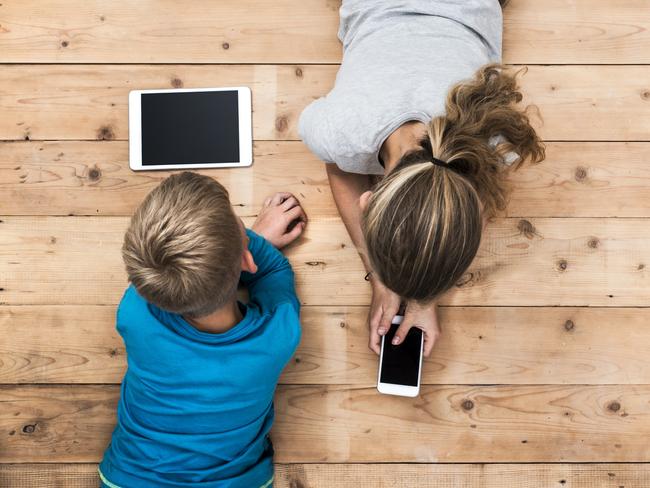Parents urged to calm kids without technology after study finds use of mobiles harms development
Giving children mobile devices to calm them down could be harmful, experts warn. See why and how to avoid it.
National
Don't miss out on the headlines from National. Followed categories will be added to My News.
Frequently giving young children mobile devices to calm them down may prevent them from learning normal emotion regulation strategies, a study has found.
Children who were given mobiles to calm them were less able to think clearly and more likely to have emotional reactions than those who were never or only rarely calmed by mobiles, the researchers in the US revealed.
And when they followed up the children after three and six months, they found those calmed by mobiles were no worse in their thinking skills than the others, but were still more likely to react emotionally.

The effects were strongest among boys and children prone to impulsivity or anger.
The prospective cohort study, published in the journal JAMA Pediatrics, included 422 parents and 422 children aged between three and five.
“Early childhood is a critical window for developing higher-order emotional and cognitive processes,” the US authors wrote.
“Research suggests that processes such as executive functioning (EF) and emotion regulation are more important for school success than crystallised intelligence, as they allow children to stay calm, focused, and flexible as they face new challenges.
“Deficits in EF are apparent in children with attention-deficit/hyperactivity disorder (ADHD) and underlie many problematic everyday behaviours, such as poor impulse control and difficulty following directions.
“Emotion regulation is a construct that includes both the propensity for emotional reactivity and the capacity to calm down when upset.”

The authors said research regarding mobile device use and EF has been limited to date.
They pointed to their prior work that has shown cross-sectional links between reduced parent-reported EF and the use of devices for calming purposes, which suggests that more impulsive children might develop heavier device use practices, and this may displace opportunities to practice goal-directed behaviour.
The authors concluded that although using videos, apps, or photographs on a device may be effective in distracting or assuaging a young child’s distress in the moment, the study results suggested that this practice may become a more frequent habit with more emotionally reactive children, and that this may worsen their emotion-regulation skills over time.
“Particularly for boys and children with more temperaments, paediatric healthcare professionals may wish to encourage alternative methods and therapeutic supports for emotion regulation from an early age,” they concluded.
Associate Professor Dylan Cliff, from the University of Wollongong, said national guidelines in Australia and the US recommend that screen time be limited to no more than one hour per day for children aged between two and five.
“The concern is that using digital technologies including mobile devices as a tool to distract children or regulate their behaviours might diminish or displace children’s opportunities to develop the internal self-regulatory processes required to calm themselves in the long-term,” Associate Professor Cliff said.

“Children need to develop these processes to learn to self-regulate – to control their behaviour, emotional reactions, and social interactions despite contrary impulses.”
Dr Katherine Downing, Lecturer in Physical Activity and Health at Deakin University, said parents should avoid using mobiles as a calming tool.
“We know it’s really challenging in the moment when young children are having meltdowns and, particularly in public, the easy option is to just give them the phone.
“But using a mobile to calm them down is just distracting them from the situation; it’s not teaching them how to process their emotions.”
Dr Downing advises parents to set a timer to help with limiting screen time and to get creative to avoid sedentary behaviour.
“When out, rather than automatically reaching for the mobile to calm kids down, a great idea is to have a bag of special toys, books, pencils, colouring books to keep them occupied.
“At home, things like putting on music (instead of the TV) to encourage dancing, setting up obstacle courses, making a cubby house, hide and seek, or playing with bubbles are all great ways to get kids away from screens and more active.
“Getting young kids involved in jobs around the house – letting them help fold the washing, chop up veggies while you’re cooking, water the plants – are great alternatives to using screens as a babysitter.”
Originally published as Parents urged to calm kids without technology after study finds use of mobiles harms development




